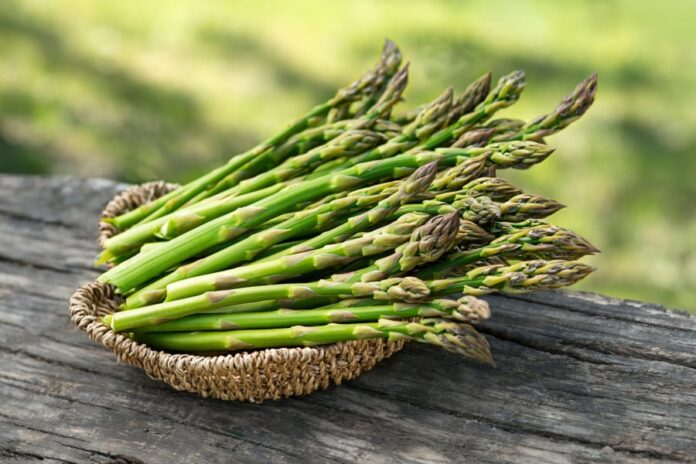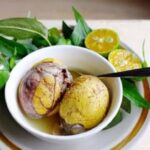Vegetables, or edible plants, encompass various parts such as leaves, roots, tubers, stems, or flowers. While all vegetables offer health benefits, none can provide all the essential nutrients our bodies need. Hence, it is crucial to eat a varied diet and consume at least five portions of vegetables daily.
Out of the hundreds of vegetables globally, some stand out for their exceptional nutritional value and health benefits. According to BBC Good Food, a list of the 20 healthiest vegetables was published, including familiar ones to Vietnamese people, such as broccoli (ranking 4th), carrots (7th), and cauliflower (8th). Notably, asparagus, a vegetable quite popular in Vietnam, topped the list.
Asparagus, native to Europe, North Africa, and West Asia, was introduced to Vietnam in the 1970s, according to ThS Phan Thị Hồng Thủy. Initially, asparagus was cultivated in Lam Dong and then expanded to most provinces and cities nationwide.
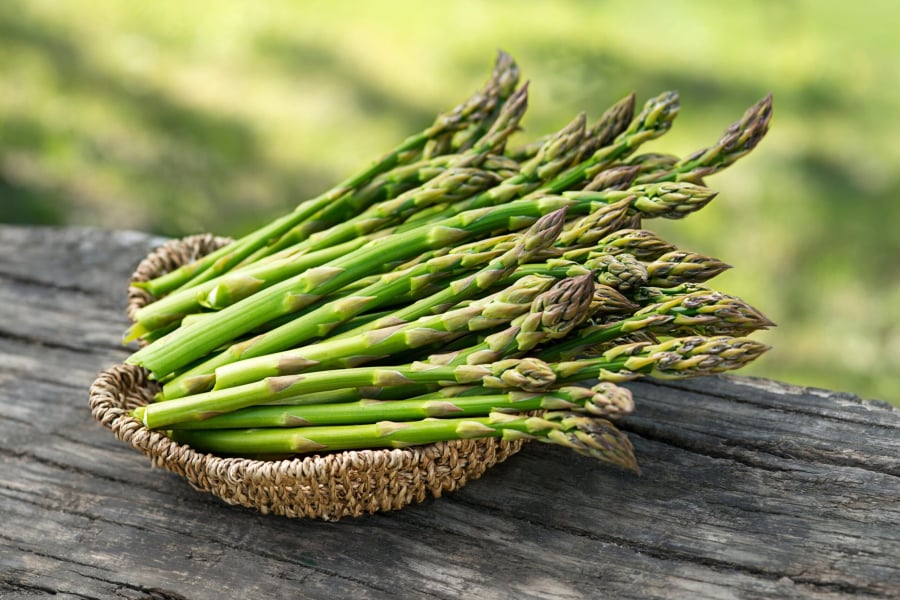
Asparagus, native to Europe, North Africa, and West Asia, was introduced to Vietnam in the 1970s
**Asparagus Benefits**
**Nutrient-Dense Superfood**
Asparagus is renowned for its high nutritional value. According to ThS Phan Thị Hồng Thủy, asparagus contains an array of essential nutrients, including:
– Antioxidants such as vitamins C and E, flavonoids, and polyphenols.
– Vitamin K, which improves bone health and aids blood clotting.
– Insoluble fiber, which enhances digestive function.
– Folate, vital for healthy fetal development during pregnancy.
– Potassium, which helps lower blood pressure.
**Multipurpose Medicinal Herb**
Apart from being a nutritious food, asparagus is also considered a valuable medicinal herb in medicine. ThS Phan Thị Hồng Thủy states, “Asparagus can help treat various health issues, including insomnia, boosting immunity, combating aging, and improving digestion.”
Notably, the roots of asparagus contain precious compounds such as sarsasapogenin, coniferin, chelidonic acid, mannitol, asparagine, and potassium salts. These components are beneficial in treating kidney-related diseases and jaundice, according to experts.
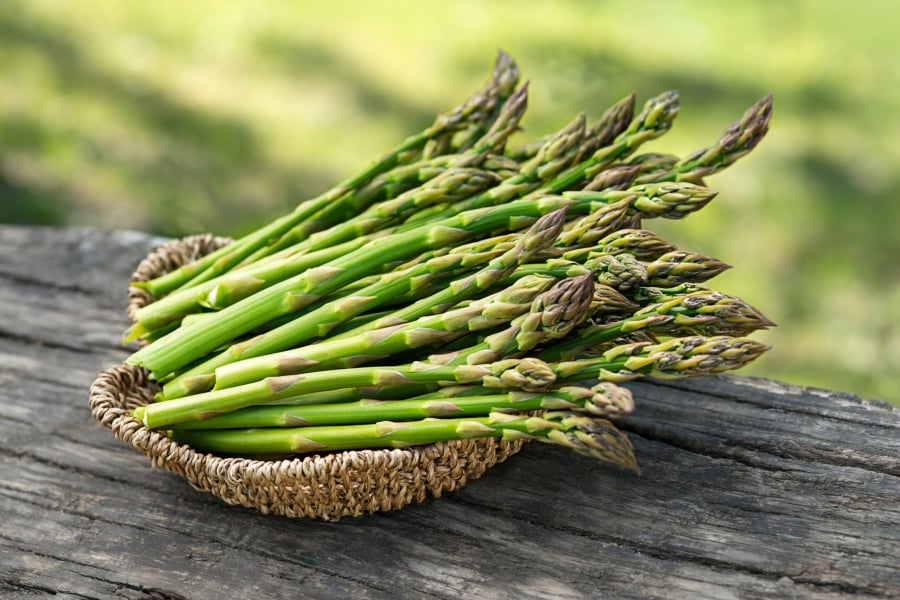
The roots of asparagus contain precious compounds.
**Digestive Aid**
Nutritionist Kerry Torrens from BBC Good Food explains, “Asparagus is one of the prebiotic vegetables that feed the beneficial bacteria in our digestive system, aiding their growth and proliferation.”
**Liver Support and Anti-Inflammatory**
Kerry also emphasizes that asparagus is high in folate, which contributes to iron absorption in the body. “The distinctive flavor and aroma of asparagus come from asparagusic acid, a sulfur-containing compound that helps protect the liver and combats inflammation,” she adds.
**Cholesterol and Blood Pressure Reduction**
Research suggests that asparagus can help lower cholesterol levels by improving bile acid binding during digestion, as per Healthline. In fact, asparagus has a much higher bile acid binding capacity than other fresh vegetables like eggplant, green beans, carrots, and broccoli.
Additionally, some animal studies indicate that asparagus may help regulate lipid metabolism, reducing cholesterol, lowering blood pressure, and promoting weight loss in mice. However, further human studies are needed to substantiate these effects.
**Potential Cancer-Fighting Properties**
Previous studies have suggested that asparagus and its extracts may exhibit anti-cancer properties, notably against breast and pancreatic cancer.
The bioactive compounds in asparagus, such as saponins and ethanol extracts from the stems, can help fight tumors or display toxicity toward certain cancer cells.
Furthermore, asparagus polysaccharides are believed to possess cancer-preventive properties by reducing oxidative stress and inflammation, supporting a healthy digestive system, enhancing immune function, and preventing genetic mutations.
However, it is important to note that most studies on asparagus’s anti-cancer potential have been conducted in laboratory settings.
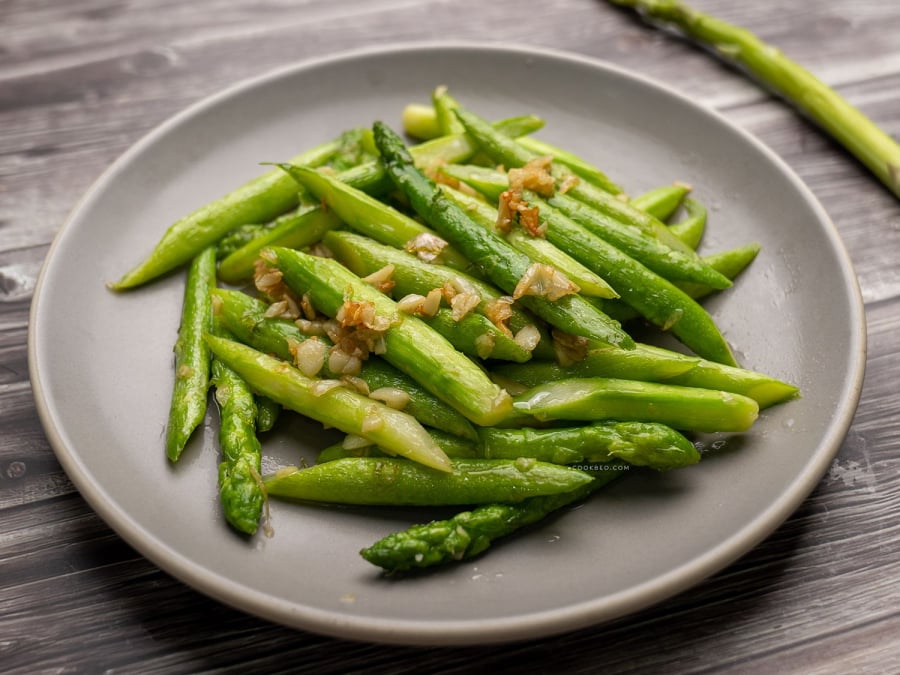
Most studies on asparagus’s anti-cancer potential have been conducted in laboratory settings.
**Delicious Asparagus Dishes**
Asparagus is a versatile ingredient that can be prepared in numerous ways. You can enjoy asparagus through simple cooking methods such as steaming, boiling, stir-frying, or grilling. A drizzle of olive oil, salt, and pepper will enhance the flavor of this vegetable.
If you want to be more creative, chop up cooked asparagus and add it to pasta, salads, or stir-fries for a refreshing twist to your meals.
Nutritionist Kerry also suggests tempting asparagus dishes like asparagus soup, chicken in cream sauce with asparagus, or asparagus and tuna salad with a squeeze of lemon. Give them a try!
“The Surprising Benefits of a Pre-Bedtime Ritual: A Dash of Pepper in the Belly Button for Men’s Health”
Introducing the humble peppercorn, a familiar spice with a surprising health benefit. For men, placing peppercorns in their navel before bed and keeping them there for an extended period can offer unexpected advantages for their well-being. Read on to discover the secrets of this ancient practice and its potential benefits.
“6 Groups Who Should Steer Clear of Balut: A Delicious Delicacy With Potential Health Risks”
Eggs have long been a staple food for humans, offering a cheap and convenient source of protein. However, one particular type of egg has divided opinions and palates across the globe – the duck embryo egg, or ‘balut’. This delicacy is loved and loathed in equal measure, and while it is undeniably nutritious, it is not for the faint-hearted or those with certain health conditions.
What Ailments Can Drinking Vietnamese Coriander Leaves Juice Cure?
Introducing the humble yet mighty leaf – the Dinh Lang. While it is commonly used as a culinary herb, adding a distinctive flavor to dishes, it is also revered for its medicinal properties. Dinh Lang leaves are not just a culinary herb, but a potent natural remedy, offering a plethora of health benefits when consumed as a herbal drink.


























